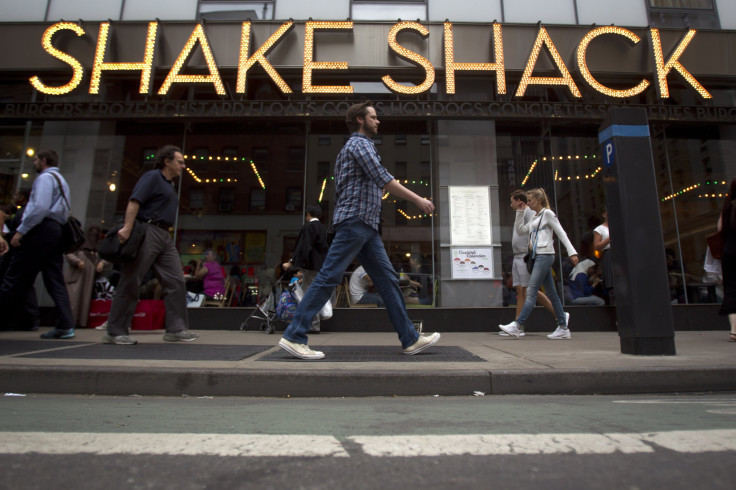Shake Shack's IPO: 5 Risk Factors To Consider Before Investing

Shake Shack is planning its Wall Street debut, and with the announcement of its initial public offering of stock comes a list of risk factors for investors to consider. Here are five things Shake Shack wants you to know before you buy stock in the beloved burger and frozen custard purveyor:
1. "Our long-term success is highly dependent on our ability to successfully identify and secure appropriate sites and timely develop and expand our operations in existing and new markets."
Shake Shack workers don't currently have a collective bargaining agreement, and the company writes that "unionization activities may disrupt our operations and affect our profitability." Phased implementation of the Affordable Care Act could also affect the cost of doing business.
2. "Damage to our reputation could negatively impact our business, financial condition and results of operations."
Obviously, the digital age is a double-edged sword for brand reputation. As much as Shake Shack relies on mouthwatering Instagrams to spread the word about its business, a negative review or incident at a store could go viral. Also, Shake Shack could fall prey to a cyberattack (like Dairy Queen this year), making customers feel like the company doesn't do enough to protect their information.
Shake Shack worries about how an illness affecting beef would disrupt operations. Shake Shack is pretty tight-lipped about where it sources ingredients, and every location has only a few days' worth of beef on hand. The company has five U.S. sources for raw beef and seven international ones:
4. "Risks related to our international operations and our international licensed Shacks"
Shake Shack gives the example of its Russian branch as international business affected by broader political and economic factors. Western sanctions against Russia have affected the brand's ability to import high-quality ingredients, "We have given our licensee in Russia approval to utilize alternative ingredients not affected by the sanctions, but there is a risk that these substitute ingredients may be inferior in taste and quality or come from suppliers that have not been vetted for food safety and quality assurance." This is a blow to a company whose popularity is largely based on serving high-quality food at a fast-food pace.
Shake Shack also counts "anti-American sentiment" as a risk to business in markets such as the Middle East. Being perceived as an "American brand" could make the company a target for boycotting or even violence.
5. "We face significant competition for guests, and our inability to compete effectively may affect our traffic, Shack sales and Shack-level operating profit margins."
Have you ever seen a Shake Shack commercial? Minimal advertising is part of the brand ethos. Expansion might require the digital and social media strategy of the brand to shift as the company spends more on advertising, Shake Shack says. "We may need to make greater investments than we originally planned in advertising and promotional activity in new markets to build brand awareness."
The company also doesn't want to open too many Shake Shacks in one area and "cannibalize" its own burger business.
© Copyright IBTimes 2025. All rights reserved.





















